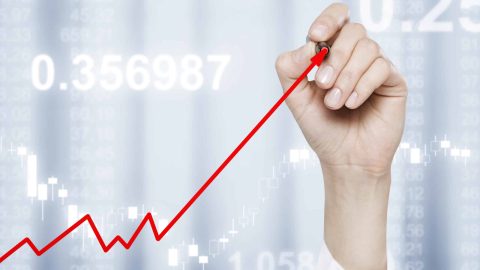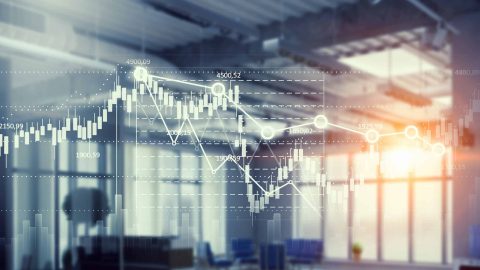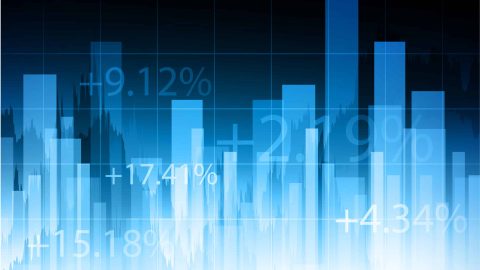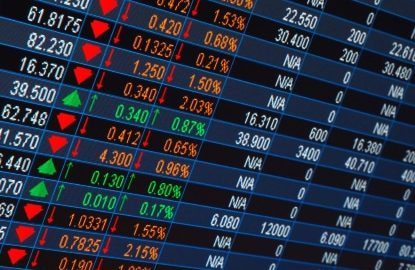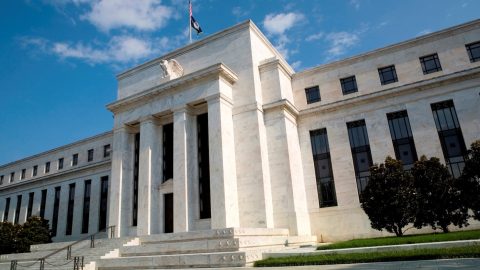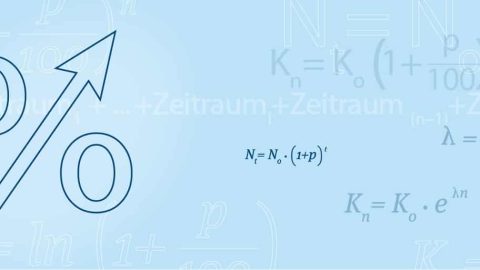The semiconductor industry is considered one of the biggest beneficiaries of the AI boom. Investors therefore kept a close eye on the sector’s figures for the first three months of 2025. One thing became clear: the expansion of AI infrastructure continues to deliver good results for most chip companies – but the sword of Damocles in the form of impending US tariffs is still hanging over industry giants such as Nvidia & Co. Read more in today’s blog post.
All articles on the topic “Markets and opinions”

Hungary: fiscal and monetary policy news
The European media has been paying attention to unorthodox economic policies in Hungary for years, supporting or opposing them depending where they stand on the political spectrum. At the same time Hungarian decision makers always stress they represent normality. Nowadays the question is: should we finally expect both monetary and fiscal policy normalization in the following years?

Trade dispute escalation averted for now
US President Trump postponed the deadline for new tariffs on imports from China. The key question is: Will there be an early resolution of the trade dispute between the US and China?
Decent, not thrilling – the reporting season in the US and Europe
What are the trends that have become apparent in the current reporting season in the US and Europe? Find out more in our new blog.

Brexit: The Final Countdown
Another Brexit defeat for Theresa May: How are things developing now? On February 27th the question arises: “May-Deal” or “No Deal”?
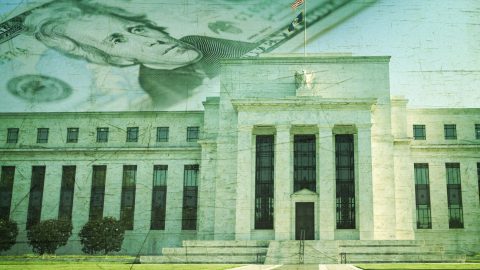
Constructive central banks
Risky asset classes such as equities have recorded price increases at the beginning of the year. The core question for the investor is: Is this recovery after the sharp decline in Q4 sustainable or not?

Latin America overview: Venezuela a classic debt rescheduling candidate
Oil production, state crisis, costly restructuring: Venezuela is in crisis. What’s next? Our analysts Christian Gaier & Felix Dornaus provide the answers.
Big Trouble in Little China?
Trade war, a possible cooling of the world economy and growing uncertainties at the home market: is the Chinese dragon spinning?
Romania – Nowhere to hide
The Presidency of the Council of the European Union caught Romania in a difficult position, both from a political and macroeconomic perspective. Now the question arises – Quo vadis Romania?

World Economic Forum Davos 2019: about economic downturn and trade war
In view of a trade war, the Brexit and the threat of an economic downturn, the World Economic Forum meeting this year was dominated by calls for increased international cooperation. Read here what Lagarde and Merkel had to say.
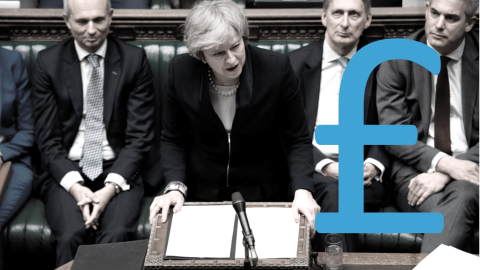
After the Brexit vote: 4 scenarios for the British pound
After the British House of Commons rejected the Brexit vote: How will things develop and what are the 4 scenarios for the British pound?
New year gains for stock markets as hopes for end of trade dispute increase
As hopes for an end to the trade war between the US and China increase, the stock markets reflected the sentiment with gains at the outset of the new year. Find out more in the new blog entry.
Ten theses for 2019
Read our recent blog post on the ten theses for financial market development in 2019. Is fear of a recession exaggerated?
Low Return on Assets – where can savers still find decent interest rates?
Many savers are fed up with investing their saved-up capital at low interest rates. The question everyone is asking themselves now is how to earn a good yield on one’s hard-earned capital in times of low interest rates like nowadays?
Stock markets in 2018 – market activity dominated by politics and volatility
2018 was a year of politics in the stock markets. Find out which three major topics dominated the international market activities in the current year.
Market remains cautious
The positive reaction to the agreement between the USA and China on not further escalating the trade conflict for the time being was only short-lived. Risky assets remain under pressure. A number of factors continue to burden the markets.
Economic outlook 2019: reasons to remain optimistic
Economic Outlook 2019: There are signs that the world economy will slow down next year. Read here why there are still reasons to be optimistic!

Slovakia: moving towards long-term sustainability?
The engine of the economy in Slovakia is running on a good momentum. In recent years it has been going through a cyclical upswing. Take a look at the drivers, but also consider potential threats going forward.
Brexit agreement ahead of vote in British Parliament
The “divorce agreement” of the British with the EU stands. At the highly anticipated EU Special Summit on Sunday, Britain and the EU agreed on their post-Brexit relations at the end of March 2019. Now only the vote in the British House of Commons is missing. It’s getting tight.

China’s future: long-term growth initiatives and dangerous asymmetries
The People’s Republic of China is one of the winners of globalisation – but the strong economic growth has also created asymmetries within the Chinese economy. Read more about how the “Made in China 2025”-strategy will help and what role the new silk road plays.
European banking overshadowed by Italian banks
The year started strongly for European markets with investors favoring Italian banks and stocks. But then came the budget proposal of the new Italian government, changing the mood abruptly. Read about it in our new blog!

Changes in the MSCI Emerging Markets Index
In 1988, MSCI Emerging Markets Index was launched and consisted of just 10 countries representing less than 1% of world market capitalization. Today the index consists of 24 countries representing 10% of world market capitalization. Read here about the changes expected until June 2020 to one of the most important global emerging markets equities index.
US Congressional election results
The outcome of the US Congressional election on Tuesday has caused some relief in the international financial markets. Read more about it in our blog.
Romania: losing its shine
On January 1st 2019, Romania will assume the Presidency of the Council of the European Union: an opportunity to regain its shine as a true growth champion and supporter of European values. But how is the country’s economy doing?

The technology cycle is not over for a while
How does Bernhard Ruttenstorfer, senior fund manager of our technology fund, see the future of technology shares? Find out here.
Financial markets 2018: reasons to be cautiously optimistic
The financial markets have been on the rocks in 2018. Read here why you should still keep a cautiously optimistic stance.
Mixed feelings on the US stock exchanges
After a good start to the US reporting season, the tide on the US stock exchanges turned last week. Find out more in our new blog.

Brazil: fundamentally sound companies despite political uncertainties
In the current environment of global uncertainties in emerging markets due to idiosyncratic events in Turkey and Argentina, the trade conflict between the USA and China and with regard to the presidential election, late September was probably one of the most exciting times to visit Brazil. Find out more in our latest blog entry.
US earnings season in full swing
The US earnings season is back in full swing. The first results for Q3 of 2018 are promising, particularly in the banking sector.

Attractive yields for emerging markets bonds in local currencies
On 17 October 2018, ERSTE BOND LOCAL EMERGING celebrated its 10th anniversary – a perfect time to have a closer look at the asset class “Emerging markets bonds in local currency ”. More in our Blog.

Stirred, not shaken – A first take on last week’s stock market meltdown
Last week, the S&P 500 lost more than 3%, followed by another loss of more than 2% on the next day. Read about the reasons behind this decrease in our new blog!
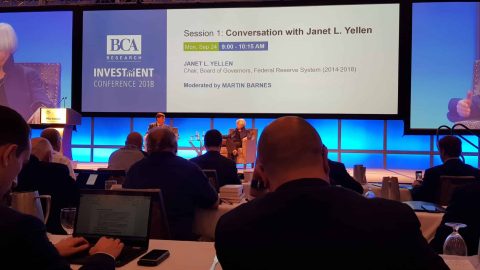
BCA Investment Conference in Toronto: How to navigate wealth to prosperity in a late stage of the business cycle
Every year the independent investment research provider BCA organizes an outstanding event for investment professionals from all over the world to come together and have a vibrant discussion about recent challenges in financial markets.
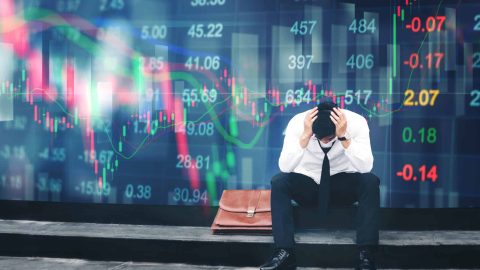
Tenth year anniversary: global financial crisis kick off
Ten years ago, the Lehman bankruptcy made huge waves in the stock markets. The after-effects of the financial crisis can still be felt today. More in our blog.
US Federal Reserve with the third interest rate hike this year
The central bankers’ assessments regarding inflation and the labour market are considered important indicators for future interest rate policy. More on our blog.
Financial Markets Monitor September – conclusion: cautiously optimistic
As long as the underlying investor sentiment remains positive and investor confidence does not tilt, we are optimistic about the autumn on the capital markets. Find out more about the outlook for the global financial markets in our new blog.
Back-to-school-season makes summer a second Christmas season for US retailers
US retailers are looking forward to another high-turnover back-to-school-season leading up to the start of the new school year. This time of the year plays an important role in the US and is regarded as the second-strongest sales driver after Christmas season.

Strong USA, weak emerging markets, risk of inflation – is the economic boom drawing to an end?
This blog entry will discuss three scenarios for the coming quarters and the coming year.
YIELD RADAR: September 2018
Annualised real global GDP growth amounts to slightly above 3%. The composition of growth is not homogenuous. While the US economy grows strongly, the weakening loan growths puts weight on the economic activity in China. Find out more in the current yield radar.
Germany remains Europe’s driving economic power
Germany is not only the largest, but also one of the strongest economies in the Eurozone and the EU. This is reflected, among other things, in its stable economic growth. In 2017, Germany’s GDP increased by 2.2 per cent compared to the previous year, only slightly less than the total Eurozone growth of 2.4 per cent.
Possible breakthrough in gene technology driving biotechnology share prices
Biotech shares are regarded as highly promising due to the innovative strength of the sector, but they also tend to be subject to drastic price fluctuations both ways. After a long period of consolidation, biotech shares have embarked on a clear upward trend since May 2018. Harald Kober, Senior Fund Manager, explains the reasons for the investors’ optimism.
European equities – still time to get on board?
The performance of European equities in the year to date has been disappointing. While in the USA stock exchanges are going from strength to strength, European share prices have been stagnating. Is it still worth investing in European equities?
Financial Markets Monitor August: We remain optimistic
The month since the previous meeting in July had been a positive one for investors willing to take risks. Thus, the optimistic risk stance of our team paid off. It is therefore not surprising that the team remains optimistic.
2018 set to be a record year for mergers
2018 could be a record year for mergers, at least if the exceptional first half of the year is any indicator. However, it is this development that makes analysts sceptical as to whether and for how long this pace can be maintained. Will this current bout of mergers soon come to an end?

Short-term stabilisation on the financial markets
After several “mini-shocks” throughout the year such as inflationary fears in the USA and a temporary crisis of trust in connection with Italian government bonds, quite a bit of uncertainty has already been priced into the market. Will the current phase, which is characterised by rising share and bond prices and that comes with credit risk be only a short-lived one? Or have the markets generally entered calmer waters?
Austrian stock market 2018: Flattish, with room to surprise on the upside
Over the past three years (2015-2017) the ATX, Austria’s main equity index, posted an annual return of more than 16%, making the Vienna Stock Exchange the best performing European stock market (or second best, if Eastern Europe is included).

Turkish lira – what are the reasons behind the current crisis?
The Turkish lira reflects the difficult situation Turkey is currently in. This year alone, the currency has shed more than 45% of its value to date. Interview update with Anton Hauser, Senior Fund Manager, Eastern Europe bonds.
Russian bonds should see good performance
In this interview Anton Hauser, senior fund manager at Erste Asset Management and expert for Central and East European (CEE) government bonds , talks about the difficult first half of 2018 and illustrates possible future scenarios.
Market view: Increased uncertainty
The performance of most asset classes in the year to date has been mixed, to put it euphemistically. Is there a common underlying factor? Can we expect to see a better second half of the year?
Post-election Turkey – What’s next?
Has the political and economical backdrop improved as result of the election in Turkey? In our newest blog post we’re answering 7 of the most important questions.
Financial Markets Monitor June: a lot going on
An Investment Committee again! A month can pass quickly, especially if there is a lot going on in the markets. In light of recent market events (Italy, Turkey, Argentina), I was surprised that our risk stance has not changed since our last Investment Committee meeting. Obviously, it takes a lot to get us out of […]

Russia back on growth path prior to the World Cup finals, but no reason for euphoria
At the kick-off for the World Cup finals on 14 June, Russia will move to the public limelight for four weeks. Time for a closer look at the Russian economy and equity market.




